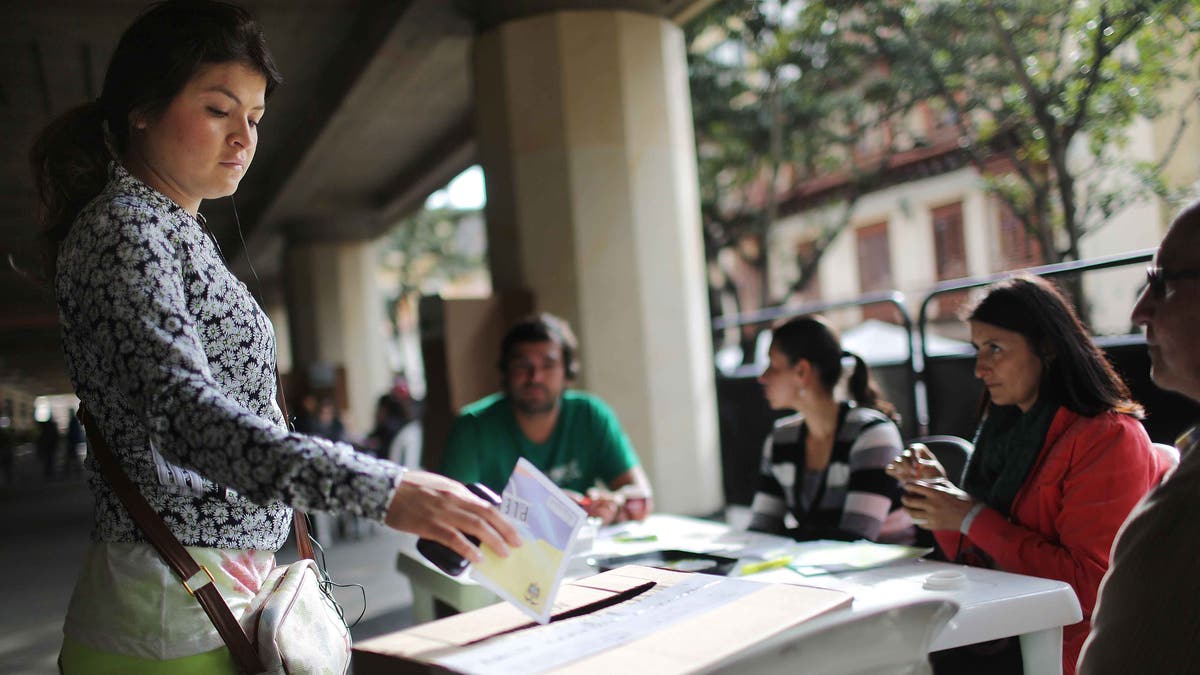
A voter casts her ballot on October 2, 2016 in Bogota, Colombia. (2016 Getty Images)
On Sunday, by a razor-thin majority, Colombians rejected a much anticipated peace deal with the Revolutionary Armed Forces of Colombia (FARC) sending shock waves across Colombia and the world.
Even those campaigning against the accord didn’t anticipate the outcome, with polling indicating that the “Yes” to peace deal would win by a comfortable margin. But amid record-high abstention, fewer than 55,000 votes tipped the balance in favor of the “No” campaign.
No Colombian wants to return to war, and the United States, will continue to do whatever it can to help to facilitate the process.
How could this happen? After all, the deal was carefully negotiated over four long years with sectors across society having a space at the table. A country that has suffered so much loss after five decades of conflict would seem poised to want to end the killing, kidnapping, and displacement.
But what motivated people to get out to vote was not peace. It was deep-seeded hatred toward the FARC and a belief that war could be ended without compromise. And although this was supposed to be a vote only on the peace deal, it’s clear that Colombian voters also used it as a referendum on the mandate of President Juan Manuel Santos whose approval was only at 29 percent as of September 2. When an unpopular leader calls for a vote, nothing can be taken for granted.
As is seen around the world, especially in this anti-establishment era, those against a policy or project are more motivated to get out to the polls — a lesson for policymakers who still see referendums as a mechanism to get the peoples’ stamp of approval. That type of validation cannot be counted on.
And here in the United States, with our own election just over a month away, Sunday’s vote yet again reinforces how no eligible voter can afford to sit back on November 8. In Colombia, the 63 percent abstention rate helped propel the “No” vote. Every vote truly does count.
Colombians at home and around the world are in a state of disillusionment. Nobody expected such an outcome less than a week after world leaders convened in Cartagena for the formal signing of the accords. Sunday’s vote was supposed to be a moment of triumph of how peace can be achieved in coordination with the international community. To say the road ahead is now uncertain would be an understatement.
But peace is still possible. Over the last four years, the process seemed doomed to failure multiple times, whether due to attacks or impasses at the negotiating table. No Colombian wants to return to war, and the United States, will continue to do whatever it can to help to facilitate the process.
Still, now with the “No” side newly energized, the question is if new terms—likely to be much harsher—will be accepted. The political fallout is immense but hope still rings that cooler heads will prevail and that a road to peace will still be possible.








































